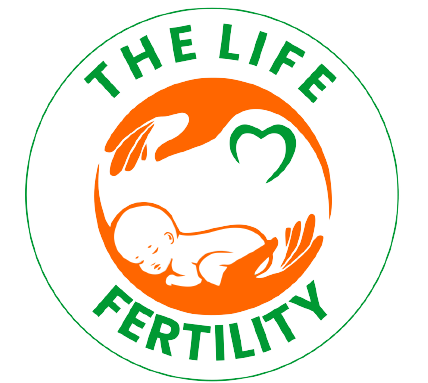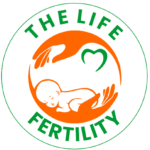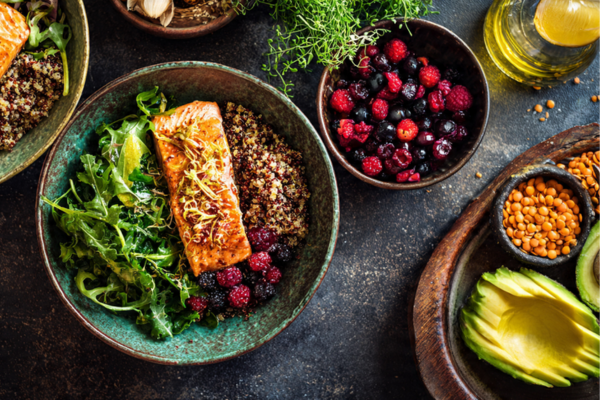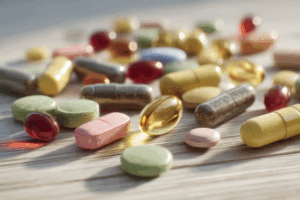Introduction: The Shared Path to Conception
Fertility is often mistakenly viewed as primarily a female health issue, but successful conception is truly a shared process. The single most powerful, non-invasive step a couple can take together to optimize their chances is adopting a targeted, evidence-based nutrition plan.
This collaborative approach, rooted in the best Fertility Diet Tips for Couples, recognizes that the health of both the egg and the sperm determines the quality of the resulting embryo. When both partners make intentional dietary and lifestyle changes, the potential for positive outcomes is amplified.
We aren’t just looking at the mother’s readiness; we’re optimizing the entire reproductive environment for two. Recent research strongly indicates that specific dietary patterns can significantly alter the biological landscape, moving the needle from challenging conception toward successful pregnancy.
This isn’t about restrictive dieting; it’s about nourishing the reproductive system with the resources it needs to thrive, starting with foundational food choices.
The core of this nutritional strategy is often referred to as the “Fertility Diet,” a pattern popularized by researchers at the Harvard T.H. Chan School of Public Health based on data from the Nurses’ Health Study.
This model emphasizes whole foods, a significant reduction in processed meats and refined sugars, an increased intake of plant-based proteins, and a focus on high-quality, healthy fats. By making these foundational shifts, couples can positively influence the hormonal balance critical for conception and create an anti-inflammatory environment in the body.
The reason this shared dietary commitment is so vital lies in the timeline of reproductive cell development. Both sperm production and the final maturation of the egg occur over approximately 90 days. This three-month window is a non-negotiable period where the building blocks—the key nutrients you consume—are directly incorporated into the DNA, structure, and energetic potential of the egg and sperm.
Therefore, the nutritional choices you make today will directly impact the reproductive health of the cells available 90 days from now.
Focusing on this nutritional optimization is the most proactive way to naturally boost ovulation in women by regulating insulin and androgen levels, and to improve sperm quality (count, motility, and morphology) in men, setting the stage for a healthy, full-term pregnancy.
This guide breaks down the science behind these dietary pillars, ensuring both partners are perfectly prepared.
Key Nutritional Pillars: Essential Fertility Diet Tips for Couples
The foundation of the Fertility Diet hinges on three macro-level swaps that impact hormonal signaling and cellular health in profound ways. These shifts are essential for any couple implementing Fertility Diet Tips for Couples.
A. Mastering Carbohydrate Quality (The Glycemic Index)
Not all carbohydrates are created equal, and their quality—measured by the Glycemic Index (GI)—is paramount for reproductive health. The goal is to maximize complex carbohydrates, which are digested slowly. This slow process prevents the rapid insulin spikes that accompany highly processed foods.
Why is insulin control so important? When insulin levels spike frequently, the body can develop insulin resistance. In women, this resistance often disrupts the delicate endocrine system, leading to excess androgen (male hormone) production, which can directly inhibit and prevent boosted ovulation.
For men, high insulin levels are linked to reduced testosterone and poorer sperm outcomes. Therefore, selecting whole grains such as quinoa, brown rice, whole oats, barley, and 100% whole-wheat products is a primary strategy.
These foods deliver sustained energy and vital fiber, supporting hormonal stability and a healthy weight, which are both crucial lifestyle changes for optimizing fertility.
B. Eliminating Refined Carbohydrates and Added Sugars
Conversely, the necessity of strictly limiting refined carbohydrates cannot be overstated. This includes white bread, white rice, pastries, highly processed breakfast cereals, and all sugar-sweetened beverages. These simple sugars are rapidly metabolized, triggering the detrimental insulin cascade discussed above.
A high dietary load of these simple sugars is strongly associated with ovulatory infertility. Beyond the hormonal disruption, excess sugar promotes systemic inflammation, creating an unfavorable environment for both egg and sperm maturation.
By replacing these items with natural, fiber-rich alternatives, couples significantly reduce inflammatory markers and stabilize the metabolic environment, laying a much better foundation for conception.
C. The Power of Healthy Fats (Don’t Fear the Fat)
For decades, fat was unfairly vilified, yet high-quality healthy fats are absolutely indispensable for reproductive function. They serve as the structural material for every cell membrane in the body, including the egg and sperm, and are the precursors to steroid hormones like estrogen and testosterone. Without enough quality fat, hormone production stalls.
Couples should prioritize monounsaturated fats from sources like avocados, pure olive oil, and nuts (almonds, pecans). Equally vital are the Omega-3 fatty acids, specifically DHA (docosahexaenoic acid) and EPA (eicosapentaenoic acid).
These are potent anti-inflammatory agents that are directly linked to improved egg quality and significantly improve sperm quality by enhancing membrane fluidity, which is necessary for effective motility.
The best sources are oily, small fish like wild salmon, sardines, and anchovies, or plant-based options like ground flaxseeds and chia seeds. Trans fats, found in many commercial baked goods and fried foods, must be eliminated, as they are proven to negatively affect ovulation.
Supporting Female Fertility: Focused Dietary Strategies
While the previous section applies to both partners, specific nutritional tactics are designed to regulate the menstrual cycle and boost ovulation consistency in women.
A. Protein Sources for Ovulation
One of the most actionable Fertility Diet Tips for Couples is the strategic substitution of protein sources. Studies suggest that replacing a portion of animal protein with plant-based protein can have a measurable positive effect on ovulation.
The focus should be on increasing consumption of pulses—beans, lentils, and peas—along with soy products like tofu and edamame. This plant-based shift provides a rich blend of fiber, vitamins, and minerals alongside protein, which is thought to assist with hormonal regulation.
Lean animal protein still plays a crucial role as a source of high-quality amino acids, iron, and B vitamins. Limited consumption of poultry and fish is acceptable, but heavy consumption of red meat, particularly processed varieties, should be minimized due to associations with higher saturated fat intake and inflammatory markers.
B. Micronutrients to Boost Ovulation and Preconception Health
Micronutrient status is a critical measure of readiness for pregnancy. The body needs high stores of specific key nutrients built up well in advance of conception.
- Folate and Iron: These two are paramount. Folate (the naturally occurring form of Folic Acid) is essential for rapid cell division and must be adequate to prevent neural tube defects early in pregnancy.
Good sources include dark leafy greens (spinach, kale), asparagus, broccoli, and beets. Iron is vital for preventing anemia, especially for women with heavy menstrual cycles, and supports energy production within the developing egg. - Vitamin D and B12: Optimal Vitamin D levels are increasingly recognized as critical for reproductive function and immune health. Many women are deficient and require supplementation. Vitamin B12, found primarily in animal products, is essential for red blood cell formation and DNA synthesis. For plant-based eaters, B12 supplementation is non-negotiable.
C. Dairy Considerations
Dairy consumption is an area that requires nuance. Research from the Nurses’ Health Study hinted at a reduced risk of ovulatory infertility among women who consumed full-fat dairy, such as whole milk or full-fat yogurt, compared to those who primarily consumed skim or low-fat varieties.
The hypothesis is that fat removal alters the hormonal components of the dairy. Therefore, if you include dairy, moderate intake of full-fat options may be preferable to non-fat versions, but this must be balanced with overall caloric and saturated fat intake.
Enhancing Male Fertility: Focused Dietary Strategies
For conception to be successful, the sperm must be healthy, mobile, and carry intact DNA. Male fertility relies heavily on antioxidant defense mechanisms to protect the sperm cells during their 90-day development cycle.
A. Antioxidants and Sperm Protection
Oxidative stress is the number one enemy of sperm health. It occurs when unstable molecules (free radicals) damage the sperm’s cell membranes and DNA. The best defense is a daily, robust intake of antioxidants.
Couples looking to improve sperm quality should significantly increase brightly colored fruits and vegetables. Key examples include deep red tomatoes (especially cooked, for the antioxidant lycopene), dark berries, bell peppers, and citrus fruits (Vitamin C).
These antioxidants scavenge free radicals, ensuring the integrity and motility of the sperm. Vitamin E, found in sunflower seeds and almonds, also offers powerful protective effects.
B. Essential Minerals for Sperm Production
Specific minerals are cofactors in the biochemical processes required to create and mature sperm cells:
- Zinc: Often called the “male fertility mineral,” zinc is crucial for regulating testosterone levels, sperm maturation, and maintaining the structural integrity of the tail (for motility). Excellent sources include pumpkin seeds, oysters, beef, and fortified cereals.
- Selenium: This mineral, found easily in Brazil nuts (one or two nuts daily provides the therapeutic dose), is key for sperm morphology (shape) and motility. Deficiencies can lead to defective sperm development.
- L-Carnitine and CoQ10: While dietary sources exist, supplements containing therapeutic doses of L-Carnitine (which fuels the sperm flagellum) and Coenzyme Q10 (an essential antioxidant for energy production) are commonly recommended to further optimize and improve sperm quality.
C. Hydration, Heat, and Lifestyle Changes
In addition to targeted nutrition, small lifestyle changes can drastically affect male fertility.
- Alcohol and Caffeine: High intake of alcohol is associated with decreased semen volume and abnormal sperm morphology. Limiting alcohol to a maximum of one to two drinks per day (or less) is prudent. Similarly, excessive caffeine (over 300mg/day) may negatively impact sperm health.
- The Heat Factor: Sperm production is highly sensitive to heat. Simple lifestyle changes like avoiding hot tubs, saunas, and consistently placing hot laptops directly on the lap are critical for maintaining the optimal temperature for the testes.
Hydration, though simple, supports blood volume and nutrient delivery, making water consumption a foundational key nutrient strategy.
Beyond the Plate: Implementing the Best Fertility Diet Tips for Couples
Implementing a fertility-supportive diet is only one component of the overall preparation. Complementary lifestyle changes and strategic supplementation cement the foundation for a successful pregnancy.
A. Essential Supplementation Strategies
While diet provides the best source of key nutrients, supplements act as an insurance policy, guaranteeing adequate intake of essential vitamins and minerals that may be depleted or difficult to absorb from food alone.
- Prenatal Vitamins: Women must start taking prenatal vitamins well before conception—ideally for at least three months. This ensures the body has built up sufficient stores, particularly of Folate, Iron, and Vitamin B12.
It’s important to understand the difference between synthetic Folic Acid and natural Folate (L-methylfolate), as some individuals with a common genetic variation (MTHFR) may benefit from the pre-methylated Folate form. - Targeted Partner Supplements: The male partner should also take a targeted multi-vitamin. Given the high demand for antioxidants and minerals in sperm production, a supplement containing therapeutic doses of Zinc, Selenium, and Lycopene is highly beneficial to further improve sperm quality.
B. The Weight Management and Exercise Connection
Weight, both too high and too low, can disrupt the complex hormonal feedback loop required for reproduction.
- Maintaining a Healthy BMI: Being significantly underweight can stop menstrual periods altogether, preventing the boost to ovulation.
Conversely, obesity is associated with hormonal imbalances (especially PCOS) that disrupt cycle regularity and reduce success rates. The most beneficial approach involves reaching a healthy Body Mass Index (BMI) through sustainable dietary modification and consistent movement. - Balanced Movement: Regular, moderate exercise is a crucial lifestyle change that improves insulin sensitivity, reduces stress, and promotes healthy circulation. However, women should be wary of intense, high-impact endurance training, which can place too much stress on the body and potentially inhibit ovulation. Consistency and balance are key.
C. The 90-Day Commitment (Consistency is Key)
The reason for the 90-day focus cannot be overstated. This window represents the life cycle of the reproductive cells. Sperm take roughly 72 days to fully mature, and the final stages of egg maturation (from primordial follicle to ovulating egg) also take about three months.
The integrity of the DNA and the energy source (mitochondria) of these cells are determined by the nutrients available during this period.
Therefore, sustained implementation of these Fertility Diet Tips for Couples is not a short-term fix; it is a foundational investment. Consistently choosing complex carbohydrates, prioritizing healthy fats, and diligently taking prenatal vitamins for three full months creates the most optimized cellular environment possible for conception.
How long should we follow these Fertility Diet Tips for Couples before trying to conceive?
It is highly recommended that both partners adhere to these dietary and lifestyle changes for at least three months (90 days) prior to trying to conceive. This time frame aligns perfectly with the 90-day maturation cycles for both the egg and the sperm, allowing the key nutrients consumed to fully optimize their quality and genetic integrity.
What are the absolute best foods to focus on for conception?
Focus on a balanced mix of foods rich in healthy fats, plant protein, and antioxidants. Key examples include: lentils and beans (great source of plant protein and folate), walnuts and oily fish (rich in Omega-3s to improve sperm quality), berries (powerful antioxidants to protect egg and sperm cells), and dark leafy greens (folate and iron). Consistent, balanced intake of these key nutrients is more effective than focusing on any single “superfood.”
Should I start taking prenatal vitamins before I am actually pregnant?
Yes, it is strongly advised to start taking prenatal vitamins at least one to three months before conception. The most critical nutrient, Folate, is needed early on for the neural tube development (brain and spine) of the baby, which occurs in the very first weeks, often before you even know you are pregnant. Ensuring these key nutrients are built up in your system early is vital.
How important is it to cut out refined carbohydrates?
Cutting out refined carbohydrates is one of the most critical lifestyle changes you can make. These foods cause sharp, sudden spikes in blood sugar and insulin, which directly disrupt the delicate balance of reproductive hormones. This hormonal upheaval can hinder or boost ovulation in women and contribute to inflammation that harms sperm DNA. Switching entirely to low-glycemic index (low-GI) complex carbohydrates is essential for maintaining metabolic stability.
Does this diet only apply to women? Does it improve sperm quality, too?
Absolutely not. This nutritional approach is inherently designed for two, which is why we emphasize these Fertility Diet Tips for Couples. Diet plays a major, often underestimated, role in male fertility by supplying the powerful antioxidants and minerals (like Zinc, Selenium, and Omega-3s) needed to significantly improve sperm quality across all metrics, including morphology, count, and motility.




